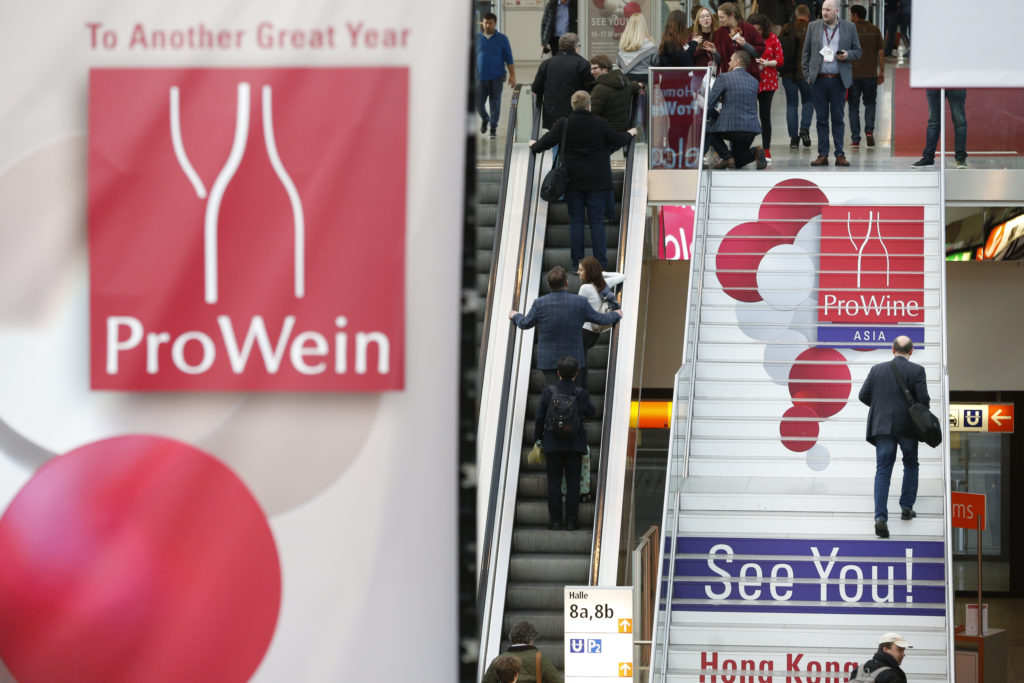
- The pandemic causes disruption of distribution channels
- Hotels, restaurants and exports hit particularly hard
- Only slow recovery expected, further losses in 2021
- Digitisation and structural change are accelerating
On behalf of ProWein, the Geisenheim University surveyed experts from 49 countries at the end of 2020, thereby covering the entire value chain of the wine industry. This year’s survey focused on the effects of Covid-19 on the global wine industry.
According to Prof. Simone Loose, Director of the Institute for Wine and Beverage Research at the University of Geisenheim, the ProWein Business Report is the first report worldwide to quantify the global impact of Covid-19 on the different areas of the wine sector and to measure the expectations for the necessary future direction of the wine industry. “The extraordinary importance of the Covid-19 topic for the wine industry is demonstrated by the very high participation rate of international experts, doubling to almost 3,500 participants compared to previous years,” says Bastian Mingers, Project Director of ProWein. This underlines the informative value of the current Business Report. “Everyone in the industry has a high interest in comparing with others the effects experienced on their business. At the same time, all businesses are looking for clues for possible strategies and ways out of the crisis.
Summary
The Covid-19 pandemic and the resulting decline of the economic situation are the most acute threats to the wine industry, which are suppressing other challenges such as health policy, climate change and the international trade war. Hotel and restaurant closures caused by the pandemic have led to a global disruption of wine distribution channels. Food retailing and online trading, and to some extent the specialist wine trade, have benefited from these shifts in many countries. However, the lack of foreign tourists caused by Covid-19 led to a sharp drop in local wine consumption in many wine-growing countries.
The impact of the Covid-19 crisis on wine producers varied depending on their sales focus. Smaller wineries were particularly affected by the closures of restaurants and hotels and the lack of tourists. The simultaneous global impact of the pandemic also led to a global decline in wine exports, especially to countries with a high proportion of wine consumption at social events and in restaurants. The industry expects only a very slow recovery of tourism and exports and anticipates a further deterioration of the economic situation in 2021.
For the majority of wine producers in Spain, France and Italy, several of their strongest sales channels, in terms of value and volume, have been negatively affected at the same time. These effects, by far, could not be compensated by increases in online sales.
In response to the pandemic, both retailers and producers intensified their online communication, opened online shops, conducted online tastings and offered delivery services. This digital transformation of the wine industry, which was greatly accelerated by Covid-19, will continue in the future, according to the experts.
Cost reductions and government aid programmes have so far been able to avert extensive redundancies and plant closures. However, the experts expect the industry to consolidate and become increasingly concentrated as the pandemic progresses and some businesses are forced to close down. In the future, companies will also strive for greater diversification across different sales channels and markets in order to spread their risk more effectively. For example, producers are trying to switch mainly to direct customer business and food retailing, which will further intensify competition in these channels in the future. It is feared that cost reductions and postponed investments will also slow down the adaptation of the wine sector to climate change and the improvement of environmental sustainability.
Although many consumers have been spoiling themselves with wine during the pandemic, experts expect that the economic consequences of Covid-19 will lead to more price-sensitive consumers and lower sales of premium wines in the future. In contrast, global sales of wine as a whole are expected to recover for the most part after Covid-19.









